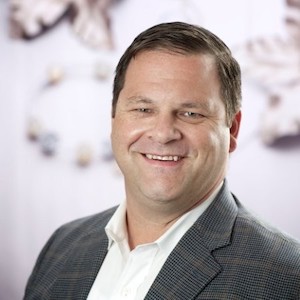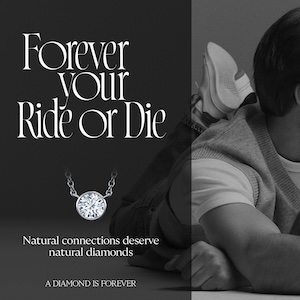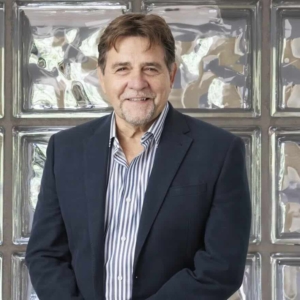
Scott Burger (pictured), the former head of Pandora’s North American division, was recently named CEO of Alex and Ani—the once high-flying Cranston, R.I.–based bangle brand. He had been serving as its chairman since 2020.
Here, Burger talks with JCK about Alex and Ani’s future now that it’s exited Chapter 11, why it lost its way, and how the things that made it relevant during its heyday might still make it relevant today:
Congratulations on the new role. What are your plans for Alex and Ani going forward?
Coming out of the bankruptcy last year, we’re finally at a place where we can start to think about growing this brand again and returning it to the place that it was and, frankly, I believe, it should still be. The company has not invested the time and resources into the brand and product over the last several years, for a number of reasons.
I think the meaning and symbols and all the things that made the Alex and Ani brand connect with consumers are still really relevant to jewelry shoppers today.
Do you have any immediate growth plans?
In the near term, we will invest in a lot of foundational things. I’ll give you a good example. We recently kicked off a pretty in-depth piece of consumer research to better understand how a jewelry shopper shops today, how they think about our brand, and understanding where they get their communication about brands, trends, etc. That is underway and should wrap up in the next 45–60 days. That will help us get a real good understanding of how consumers feel about Alex and Ani, and that’s going to be important in helping guide our product development efforts.
At the same time, we’ve started talking to some creative agencies to help us come up with a brand campaign that really reintroduces Alex and Ani to jewelry consumers in a way that meets them where they are.
And then, third, is developing the product and listening to the consumer and interjecting that into our product development process to really make the offering a bit more updated and relevant than it’s been over the past 12–18 months.
Over the last couple years, as the brand was more silent than it was before, people reached their own conclusion about what was going on with the brand, instead of us making sure they understand what we stand for and why. We think that’s important to get back to that, and once we do, we’ll develop the new messaging.
[Founder and former CEO] Carolyn Rafaelian is no longer involved in the brand. Do you see her or [attorney] Mark Geragos, who bought out her 35% interest, getting more involved?
I have tremendous respect for Carolyn. This is the company she started, and she and I have built a pretty good relationship over the last several years. She’s obviously transitioned her energy into her new endeavors, and I think she’s really excited about those. I don’t see her getting back involved.
Mark is a member of our board, and he’ll be an important voice on the board going forward.
Is [owner] Lion Capital willing to put resources behind the brand?
Bringing the company through a Chapter 11 process involves considerable resources. Lion Capital has stepped up and supported the company through that process. I have every reason to believe that the company will have the resources it needs to grow again.
In the next 9–12 months, there’s a lot of work that has to happen to get the company ready to grow again. This decline happened over a period of years, and it’s not going to reverse itself with just money and resources behind it.
We’ll be making some important additions to our team. At the end of the day, when the executive team settles, we’ll have a nice mix of people who have been part of this company going back to the glory days and have a really good understanding of the heritage of the brand and also a real passion to reintroduce it. We will also have some fresh faces and voices that can bring a different dynamic to the conversation
Pandora has had something of a comeback lately. Do you see them as a possible role model, or do you see them as different brands?
I see them as different. Obviously, I still have a lot of friends at Pandora. I’m very happy that they’re having the success that they’re having. One thing that Pandora has done really well is they have broadened their reach. They connect to a younger demographic that they weren’t as relevant with before. With any brand, whether it’s Alex and Ani, or anyone else, you have to make the brand offering and the product offering relevant to as broad a demographic as possible.
We’re obviously two different brands, and pricing is dramatically different, the styling of the products is different, certainly the metal composition is different. When I was on their side of the fence, I thought the brands could coexist really well together and be complementary to one another.
Alex and Ani has been known for giving large amounts of money to charity and for keeping its headquarters in Rhode Island. Do you plan to continue that?
Charity is obviously important for any company. I think it’ll continue to be an important piece of our company, our willingness to give back to the community. In terms of Rhode Island, I’m sitting here today. We have a large workforce here. We’re committed to this building, and it’s been a really important place for the company and brand for a long time.
You just spent a few years heading a mattress brand, where you doubled its business. Is there anything you got from your experience there that helps you with now running a jewelry company?
I’m not trying to oversimplify it, but to me it comes down to people and product and being humble enough to listen to what the consumer says, because especially in today’s marketplace, consumers get to vote every day.
As long as you have that kind of focus on getting product right and building up a top talented team, you’re going to perform. That model translates, whether you’re selling mattresses, jewelry, or back in the days when I worked in the grocery business. I think the recipe is pretty simple, but obviously the devil’s in the details—and in the execution.
You sell through your own channels as well as wholesale. Do you plan to keep selling to jewelers?
We have some wholesale partners, and we’ve done really well together. I think you’ll see us probably take a step back there and redouble our efforts around the ones that we’ve performed well with and have shown kind of a commitment to the brand.
In the meantime, we’ll be doing our work and creating a new and exciting energy around the brand and the product.
Last year was a great one for the industry, but, unfortunately, Alex and Ani wasn’t able to ride that wave. Do you think that will be possible?
There are things we control and things that we can’t. Unfortunately, for Alex and Ani, as you just said, we weren’t in a position to capitalize on the favorable dynamics in the industry over the last couple of years. I think we have a lot of work to do before we’re ready to be in that position again. We’re obviously eager to get that work started and get it finished and start to show progress as quickly as possible.
Anything else you want people to know about Alex and Ani?
This has been a great, great brand. One of the things that excited me when I joined the board—and certainly excited me as I transitioned to CEO role—is that Alex and Ani and Pandora are two of the only brands who have accomplished what they have.
Back in the day, Pandora was largely known for celebrating moments, and Alex and Ani cornered the market around meaning and symbols. Both of those companies did a good job of connecting with consumers on things that are very personal. When a brand—especially with a product like jewelry—connects with customers’ emotions, the better [it] will do. We still have a compelling emotional story, and we just have to make sure the assortment is relevant.
(Photo courtesy of Alex and Ani)
Follow JCK on Instagram: @jckmagazineFollow JCK on Twitter: @jckmagazine
Follow JCK on Facebook: @jckmagazine





